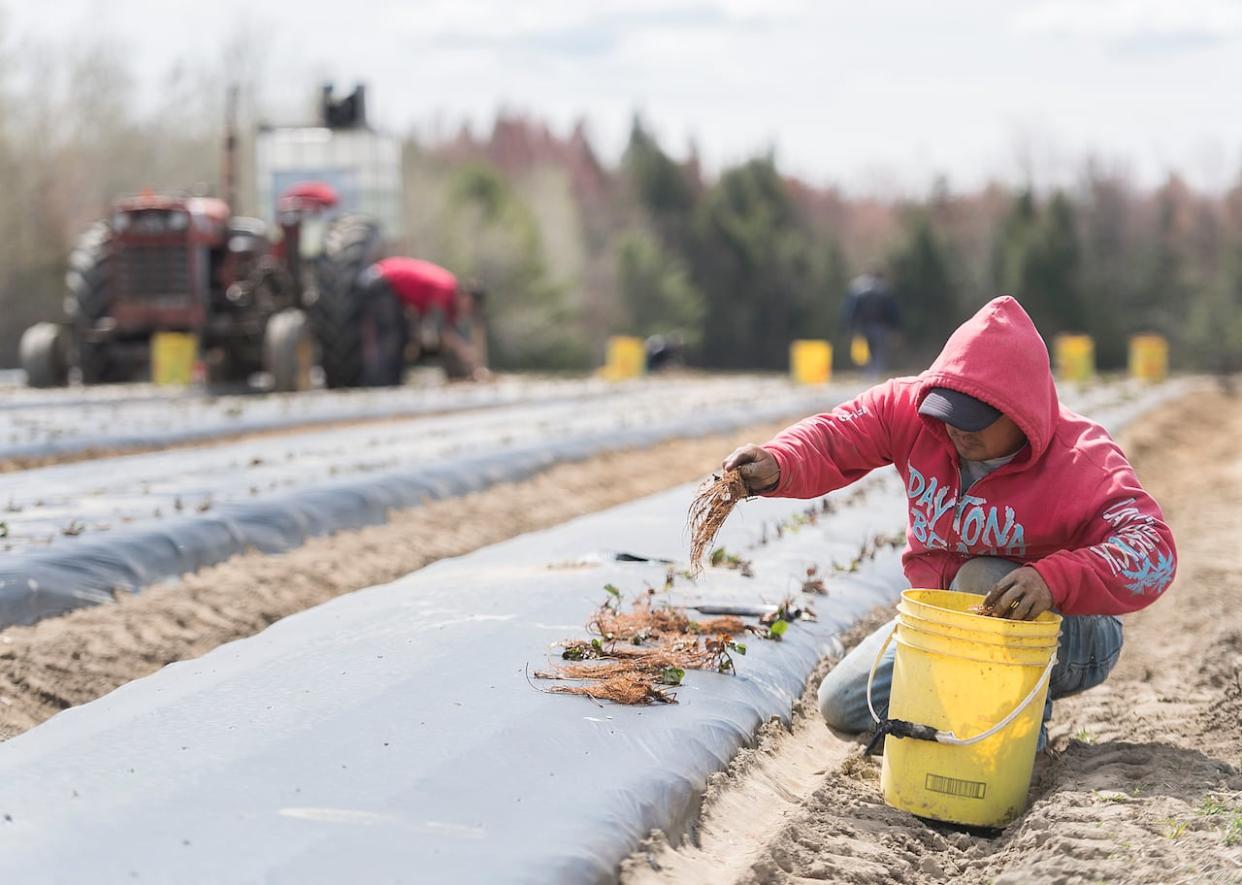N.B. advocate for migrant rights says Senate report could have gone further

A recent Senate report documenting the plight of Canadian migrant workers could have chosen anywhere in the country to focus on.
But the senators chose New Brunswick and Prince Edward Island, something one advocate said was needed.
"From our perspective, it certainly seems like they recognized that there was something particularly insidious that was happening to workers in New Brunswick and Atlantic Canada and the Maritimes," said Aditya Rao, with the New Brunswick-based Madhu Verma Migrant Justice Centre.
Rao, who is quoted in the 150-page report, said New Brunswick's migrant worker situation is especially vulnerable to exploitation since workers here are often in extremely rural corners of the province.
"There's no access to public transportation because it simply doesn't exist, so they're entirely dependent on employers to go and do things like grocery shopping [or go to] doctors' appointments," Rao said.
"The employer has complete and utter control over workers' lives in New Brunswick."

Aditya Rao, a board member of the Madhu Verma Migrant Justice Centre, said the solution 'is to provide permanent residency upon arrival. The only way to end precarious employment and precarious immigration status is to give people permanent residency.' (Matthew Liteplo/Submitted by Aditya Rao)
The report, Act Now: Solutions for temporary and migrant labour in Canada, was released this week with several recommendations.
The foreign worker program, started in 1973, was intended to be temporary to offer foreign labour as a last resort for Canadian employers.
But 50 years later, the senate report said there is a different reality.
"It is clear that the Temporary Foreign Worker Program is neither temporary nor a last and limited resort. The program is not working for migrant workers and could work better for employers," the report said.
It recommends creating a commissioner of migrant workers, as well as phasing out work permits that tie migrant workers to a single employer, instead recommending the creation of region- or sector-specific work permits.
But Rao said he wanted the report to go further, arguing that those kinds of permits aren't much better than the ones tied to employers.
"Frankly, we believe that the solution is to provide permanent residency upon arrival. The only way to end precarious employment and precarious immigration status is to give people permanent residency."
He also said he expects "we'll spend another generation, I suppose, writing reports about the impact of regional and sectoral work permits on the abuse of migrant workers because we know that's what will happen with those work permits, too."
Rao said it's about giving workers the freedom that Canadian citizens already have so that they aren't subject to abuse. Many migrant workers fear speaking out about unsafe or abusive work situations because their immigration status is tied to their employer, he said.
Rao said despite his wish for stronger recommendations, he does appreciate the report shining a spotlight on the problem and likes some of the suggestions, such as unannounced site visits to employers.
Senator heard stories of abuse in N.B., P.E.I.
Ratna Omidvar chaired the Senate committee that wrote the report. In an interview with Information Morning Fredericton, she said the migrant worker program has become incredibly complex.
"No one really fully can appreciate how complex it is. And 50 years since we brought in our first temporary farm worker, we thought it was important to take a hard look at what's working, what's not working," Omidvar said.
She said senators specifically toured farms, seafood processing plants and manufacturing plants to meet with migrant workers and employers.

Senator Ratna Omidvar said she heard about mistreatment of migrant workers on her visits to New Brunswick and P.E.I. (Ryan Walker/Ryerson University)
"And we heard from workers that because they have a bigger goal, which is to stay in Canada permanently, they tolerate abuse and mistreatment … because they do not want to jeopardize any chance they have of permanency."
Omidvar also said she heard employers express challenges with long processing times, but also their dependency on the program.
"We had a franchise owner say to us, 'If I have no temporary foreign workers, I have to shut down.'"
Omidvar said the government now has 120 days to respond to the report before next steps become clear.


